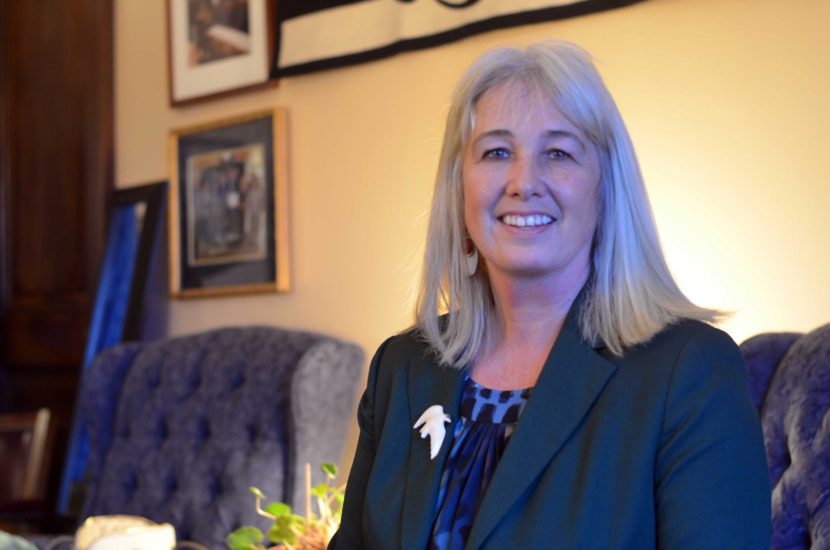The bill that would cut Alaskans’ Permanent Fund dividend checks in half this fall faces a tough legislative test this week. While the Senate passed its version of the bill, Senate Bill 128, the House version, House Bill 245, may not make it through the House Finance Committee. Lawmakers from both ends of the political spectrum are raising concerns with the measure.

The bill would allow the state to draw $1.7 billion from Permanent Fund earnings to pay for state government. It’s the centerpiece of Gov. Bill Walker’s plan, intended to bring fiscal stability to state government and the economy.
It would work like an endowment, with about 5 percent of the fund going toward the state budget each year.
Rep. Cathy Muñoz, R-Juneau, said the bill would help the state’s economy by stabilizing government and bolstering the state’s credit rating.
“It’s very important that we sustain our services, and that we provide a reliable and predictable source of revenue for state services,” she said.
Muñoz also says the bill would protect Permanent Fund dividends. That’s because if the state doesn’t close its deficit, it would exhaust the fund earnings account that pays for dividends in roughly six years.
But it’s hard to make that case to Alaskans, who are facing a cut from what was expected to be about $2,000 this fall to $1,000 under the bill.
Many residents have been making their voices heard since the Senate passed its version of the bill on June 6, calling on House members to oppose the cut.
That’s sharpened opposition that’s coming from both conservative Republicans and minority-caucus Democrats.
Rep. Scott Kawasaki, D-Fairbanks, opposes the bill. Before reconsidering his position, Kawasaki would like to see Walker press the legislature to make deeper cuts to tax credits to North Slope oil producers.
“I have some real troubles, especially in light of the oil tax subsidy bill that passed, which is hundreds of millions of dollars,” Kawasaki said. “It’s hard for me to go back to my constituents and justify cutting their PFD, just to pay for those oil tax subsidies.”
Andy Josephson, D-Anchorage, would like to see the bill amended to lift a limit on the combined amount of revenue from fund earnings and the oil and gas industry. The limit wouldn’t adjust for inflation, which could sharply limit government spending over time.
“I’m not going to support a bill that has a spending cap that would change the way historically we’ve done business when we look at the budget each year,” Josephson said. “That is, we have an ongoing debate about the ability to fund certain programs and the need for those programs.”
But some conservative representatives oppose the bill for a different reason. They say the legislature hasn’t gone far enough to cut the size of government to justify reducing PFDs and drawing money from fund earnings.
Lynn Gattis, R-Wasilla, is among the finance committee members who oppose the bill.
“It’s not about Alaskans not willing to pay their way, but it’s more about Alaskans saying: ‘The moment we backfill it, there will not be the will to continue the necessary cuts,’” she said.
The House Finance Committee is scheduled to hold a hearing on the bill Tuesday morning, with public testimony scheduled for 5 p.m. If the bill does make it out of committee, other representatives like David Talerico, R-Healy, will have to weigh in.
Talerico said the bill presents a real dilemma.
“It’s very difficult for every legislator to think about changing the structure of the Permanent Fund,” Talerico said. “But I’m also very concerned with our credit rating as a state.”
While lawmakers are hearing from constituents opposed to the bill, Walker administration officials – as well as officials with groups that support the bill like the AFL-CIO – are also reaching out to them.
The last day of the special session is June 21.
Andrew Kitchenman is the state government and politics reporter for Alaska Public Media and KTOO in Juneau. Reach him at akitchenman@alaskapublic.org.




